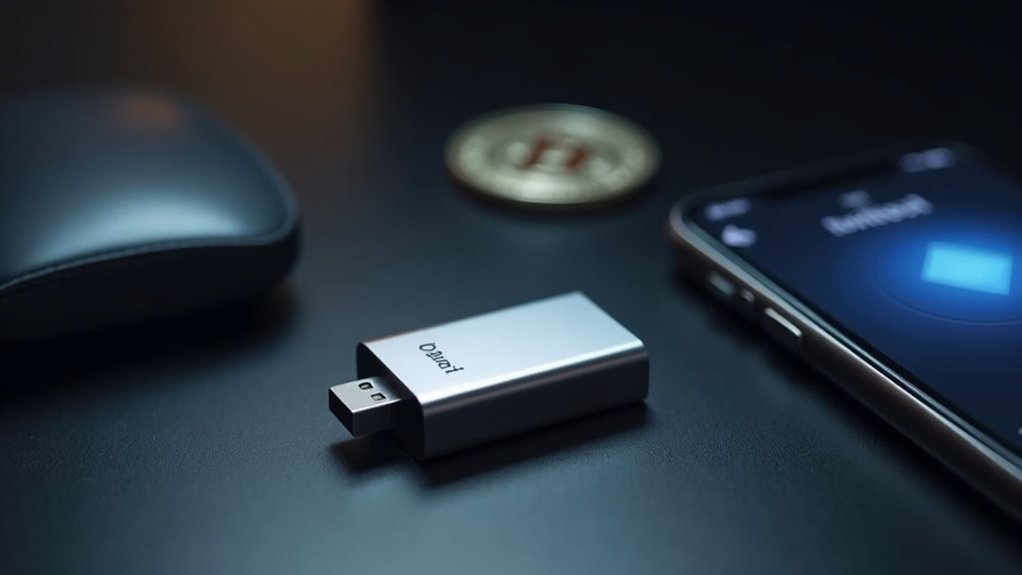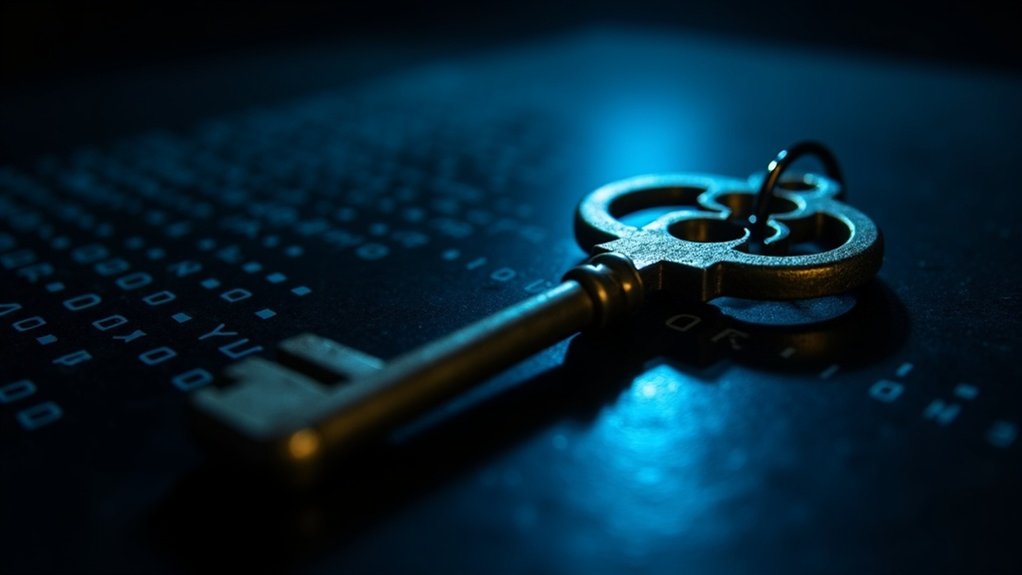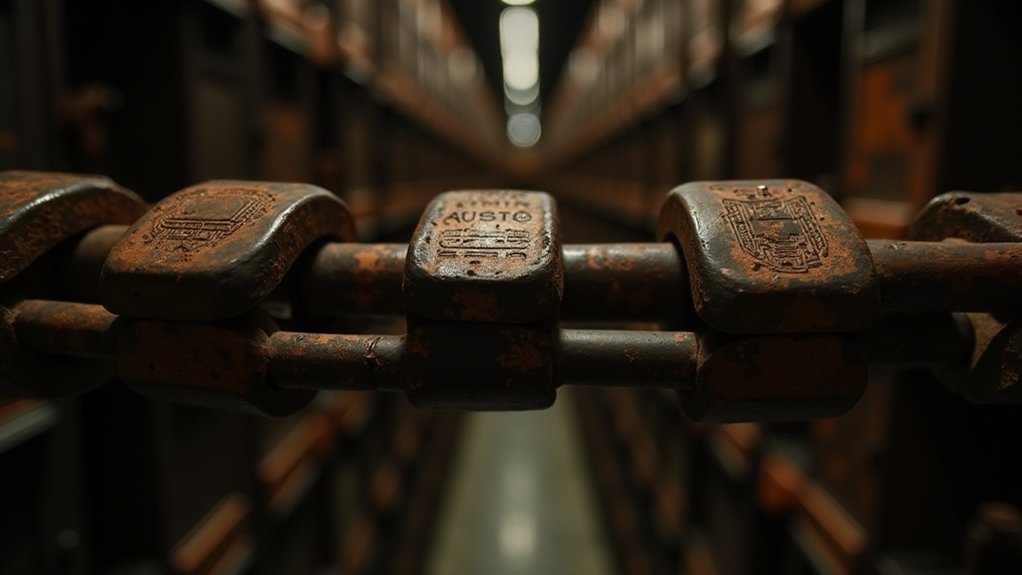Getting a Bitcoin wallet isn’t rocket science. First, decide between hot wallets (online, convenient) or cold wallets (offline, secure). Hot options include mobile apps like BlueWallet or Trust Wallet—perfect for beginners. Hardware wallets like BitBox02 offer better security for serious investors. Download only from official sources to avoid scammers. Always enable multi-factor authentication and backup your seed phrase. The right wallet depends on how often you’ll move your Bitcoin and how paranoid you are about security.
Wondering how to step into the world of Bitcoin? First, you need a wallet. Not the leather kind. The digital kind.
Bitcoin wallets come in different flavors: hot, cold, and somewhere in between.
Hot wallets connect to the internet. Cold wallets don’t. Simple as that.
Hot, cold, no middle ground. Like the digital Wild West, your crypto either lives online or off the grid.
Hardware wallets like BitBox02 offer the best of both worlds. They’re offline until you plug them in. Then—poof—they’re online.
These little devices look like USB sticks but pack serious security features. Custom bootloaders. Secure chips. Fancy stuff that keeps hackers away from your digital gold.
Software wallets are more convenient but less secure. Mobile wallets on your phone. Desktop wallets on your computer. Web wallets in your browser. They’re all connected to the internet, which means they’re always at risk. But hey, convenience costs. Remember that wallets store your private access keys, not the actual cryptocurrency.
Paper wallets? Yeah, they’re literally paper. You print your private keys and store them like grandma’s secret recipe. Old school. Effective. Just don’t spill coffee on them.
Choosing a wallet isn’t rocket science. Long-term investor who rarely moves funds? Go cold. Frequent trader? Hot wallet makes sense. Want balance? Hardware wallet.
Beginners often start with mobile wallets like BlueWallet for Bitcoin or Trust Wallet for multiple coins. Trust Wallet supports over 10 million digital assets across more than 100 blockchains. Electrum is another good option known for its private key encryption and two-factor authentication.
Popular options include BitBox02 for the security-conscious, Exodus if you like pretty interfaces and multiple coins, and Sparrow for Bitcoin purists. Each has its strengths. None is perfect.
Setting up is straightforward. Choose your wallet type. Download from official sources only—scammers are everywhere in crypto. For hardware wallets, buy directly from manufacturers. No sketchy third-party sellers.
Remember: different wallets support different cryptocurrencies. Bitcoin wallets won’t work with Ethereum. That’s just how it is.
Security features matter. Look for multi-factor authentication. Seed phrase backups. Open-source code. Third-party audits. The more paranoid the developers seem, the better your money is protected.
Welcome to Bitcoin. Trust no one. Verify everything.
Frequently Asked Questions
How Long Does a Bitcoin Transaction Typically Take to Complete?
Bitcoin transactions typically take around 19 minutes for initial confirmation as of early 2025, though full clearance requires 3-6 confirmations—that’s roughly 30-60 minutes total.
Not exactly instant gratification.
Network congestion, those pesky 1MB block size limits, and fee amounts all affect speed.
Pay higher fees, get faster service. Simple economics.
During high-volume periods, transactions with minimal fees can get stuck for hours or even days.
Bitcoin’s not known for its speed.
Are Bitcoin Wallets Insured Against Theft or Hacking?
Most Bitcoin wallets aren’t insured. Unlike bank accounts, no FDIC protection here.
Some private insurers offer policies, but they’re rare and expensive.
Coverage? Limited to qualified custodians and typically only protects against hacking or breaches—not your careless key losses or forgotten passwords.
Sorry, your mistakes aren’t covered.
A few companies like Boost Insurance and Lloyd’s of London provide options, but mainly for businesses and institutions.
Regular users? You’re mostly on your own.
Can I Recover My Bitcoin if I Lose My Wallet Password?
Recovery depends on what you’ve got left. No seed phrase? Tough luck.
Modern wallets use 12-24 word recovery phrases that can restore access even without passwords.
Without that, options are limited.
Password recovery tools like btcrecover.py might help if you remember fragments.
Professional services exist, but they’re not miracle workers.
Bottom line: no central authority to reset things. Bitcoin’s security is a double-edged sword. Great until you’re locked out.
What Fees Are Associated With Bitcoin Wallet Transactions?
Bitcoin wallet transactions incur several fees.
Network fees go to miners—higher during congestion, lower when it’s quiet.
These vary by transaction size (in bytes).
Lightning Network transactions cost less but have two-part fee structures.
Then there’s the sneaky stuff: exchange fees, wallet service charges, and payment method surcharges.
Different cryptocurrencies have different fee structures too.
Bottom line? Fees are everywhere in crypto. Just part of the game.
Can Government Authorities Track My Bitcoin Wallet Activities?
Yes, governments can absolutely track Bitcoin wallet activities.
The blockchain is public—every transaction sits there for all to see.
Exchanges hand over user data when asked, thanks to those KYC regulations everyone loves to hate.
Law enforcement has specialized tools and partnerships with analytics firms like Chainalysis.
Even your ISP might be recording your crypto browsing habits.
Bitcoin isn’t anonymous; it’s pseudonymous. Big difference.
Privacy? More like a thin digital veil.








